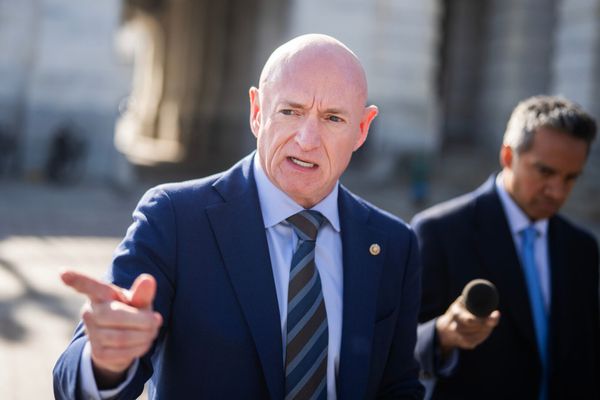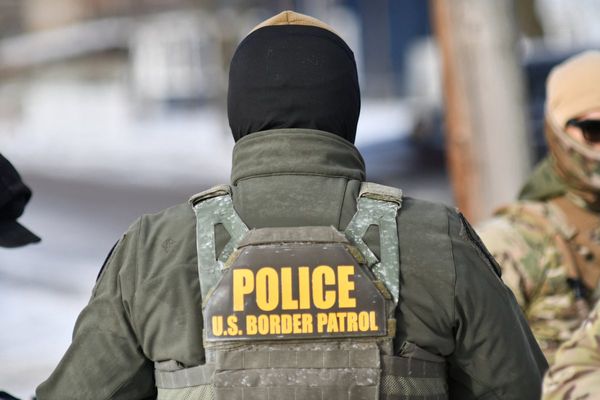Syria held its first parliamentary election on Sunday, nearly a year after a surprise rebellion toppled longtime President Bashar al-Assad in December.
Security forces were deployed around polling stations nationwide. Electoral college members entered polling booths to fill our their ballots, which were then placed in a sealed box until they were pulled out and counted in front of candidates, journalists and observers from the Syrian bar association.
The election however did not feature a direct vote by Syrian citizens.
The new People’s Assembly features 210 seats, 40 less than under al-Assad. Members of the new assembly will also serve two-and-a-half year terms.
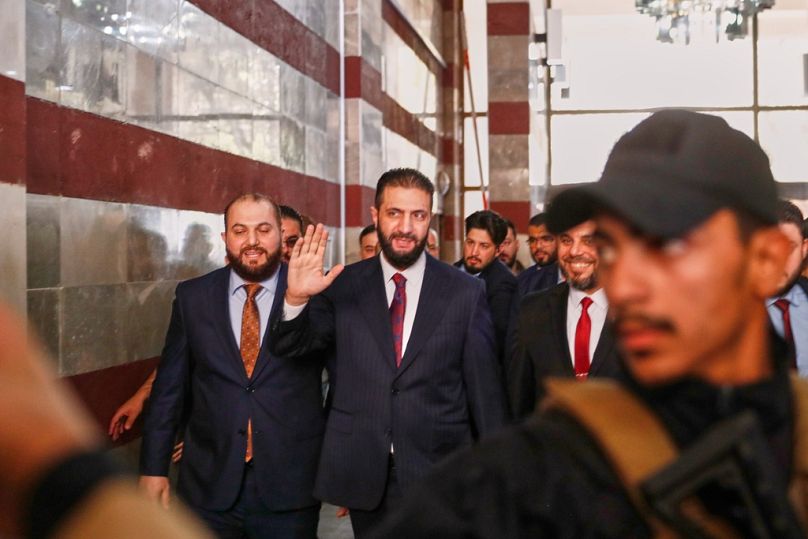
Incumbent President Ahmed al-Sharaa will appoint 70 members to the assembly, the remaining 140 will be voted on by subcommittees, overseen by 11-person Supreme Committees, who were appointed by al-Sharaa.
Officials say this election was not a direct vote as they lacked “reliable census data” after millions of people were displaced by 14-years of brutal civil war.
Around 7,000 people are eligible were eligible for voting and cast their ballots at regional electoral colleges, but elections were postponed indefinitely in the Sweida province and in areas controlled by the Kurdish-led Syrian Democratic Forces due to tensions between the local authorities and Damascus.
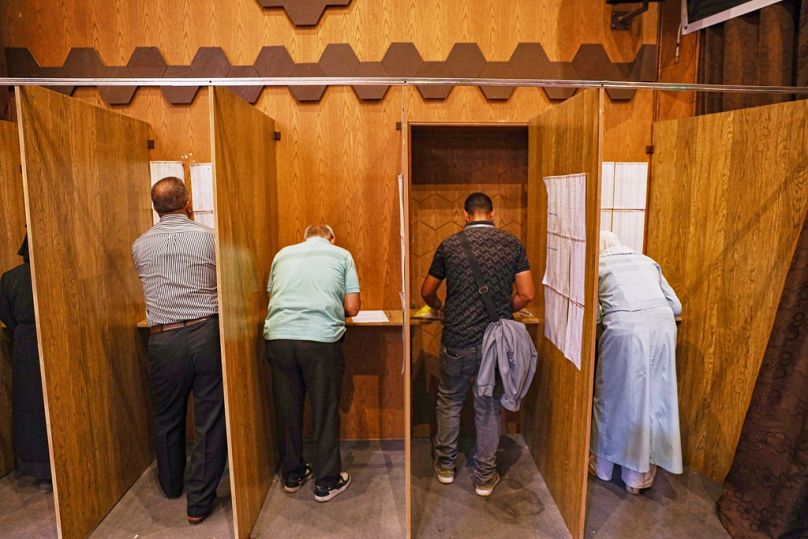
Candidates also have to meet certain criteria to be eligible to run in the election. Around 70% of MPs are required to be academics or experts while 30% of those who’ll occupy the 140 available seats are required to be “notable members” of their community, and hold academic degrees.
The new People’s Assembly will be tasked with passing a new elections law and constitution as the country moves through its post-Assad political transition.
Critics argue the elections fall short of full democracy, noting that the electoral college system may favour well-connected candidates, consolidating power within the interim government.
In the capital, Damascus, 490 candidates competed for 10 seats, with only 500 voters in the electoral college.
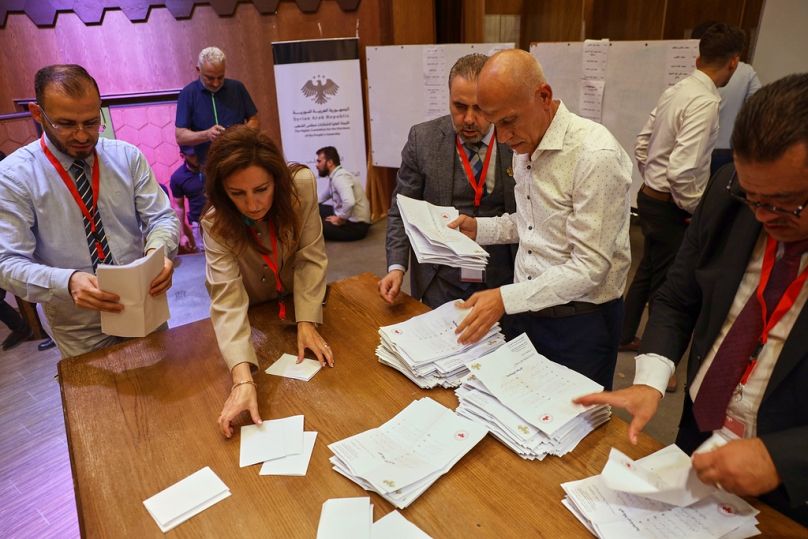
But for others, the election was a sign of progress. Initial results on Sunday evening showed few women and minorities winning seats.
Lara Eezouki, a member of the national elections committee in Damascus, noted that the new assembly includes all sects and groups and said it's "the first time in Syria’s history that the ballot box truly rules — when the results are not prearranged.”
Comparing elections under Assad to those today, Rim Yajizi, a lawyer, member of Damascus’s electoral body and candidate for the People’s Assembly, said, “It’s enough to mention the freedom factor, the electoral statements and the debates we watched and participated in. We had never seen anything like it before.”
In Latakia city, a former al-Assad stronghold and home to a large Alawite community, three Sunni candidates won the vote.
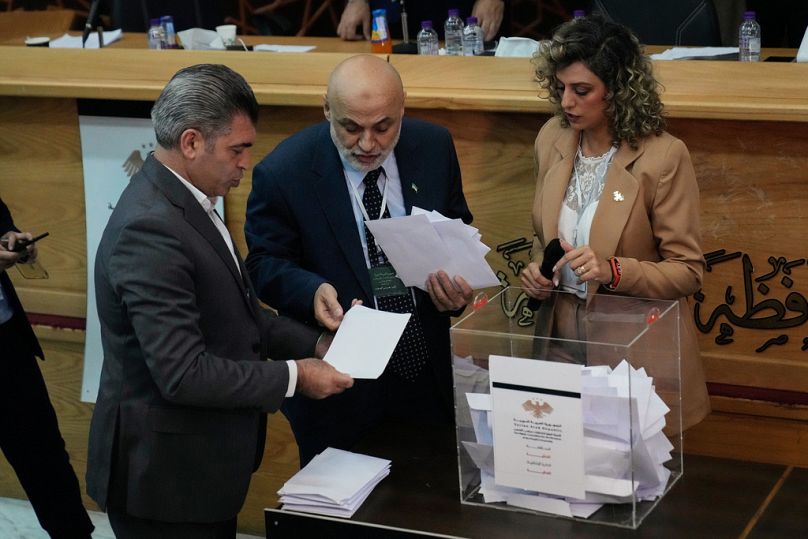
In March 2025, sectarian revenge attacks killed hundreds of Alawite civilians along Syria’s Mediterranean coast in Latakia and Tartus provinces after armed groups affiliated with the former president attacked security forces of the new interim government.
“All those who said that the situation in Latakia was good (before) are wrong,” said Rola Daya, one of the newly elected legislators. “Of course, internal tensions remain — it will take time to resolve. Transitional justice is needed so we can move toward civil peace.”
The elections are a historic moment after more than 50 years of dynastic, oppressive al-Assad rule – Bashar and his father Hafez – and are another test for the new government.
Syrians hope this new election, and elected government, will pave the way for future direct elections and lead the country to a free and democratic future. They also hope the new government will lead to greater economic stability and revive an economy battered by war.




